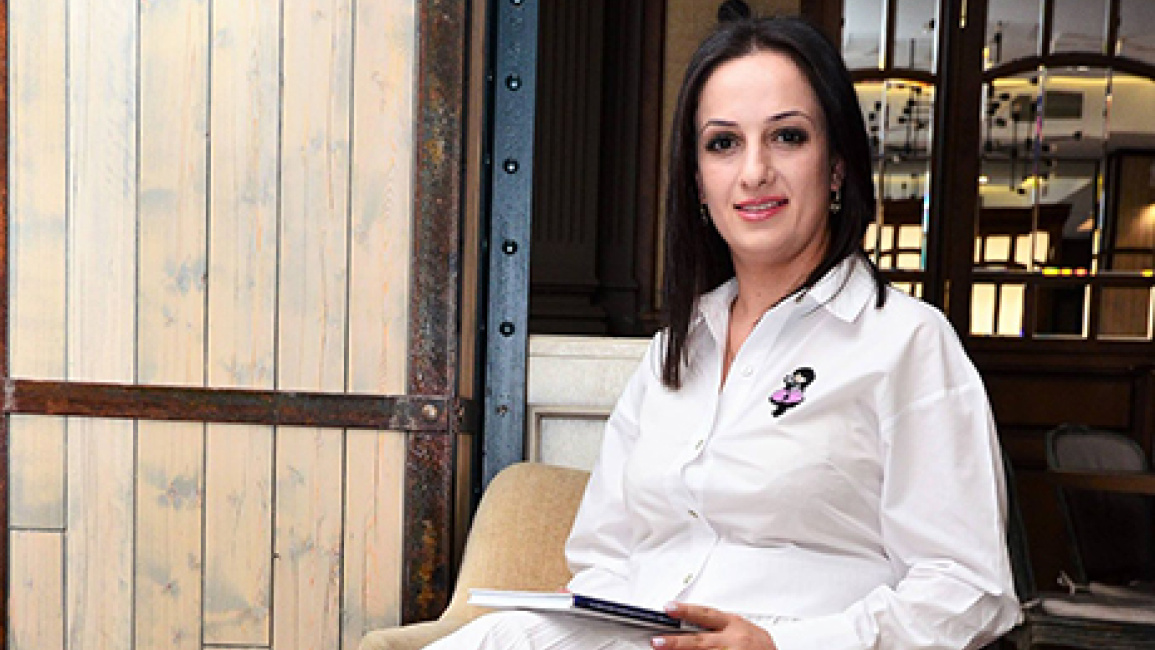- Main
- Node
- "THE DOMINANT SUBJECT OF COMPETITION IN THE MODERN WORLD IS NO LONGER A MATERIAL BASIS." LILIT SHAKARYAN
July 28, 2021 | 17:08
Society
"THE DOMINANT SUBJECT OF COMPETITION IN THE MODERN WORLD IS NO LONGER A MATERIAL BASIS." LILIT SHAKARYAN
Lilit Shakaryan, a lecturer at the Department of Social Work and Social Technologies of YSU, has published her second book "Communication Challenges in the Information Society", which discusses the role and significance of the information revolution in the life of humanity and development processes of the public spheres. We talked with Ms. Shakaryan about the book, the topics covered in it and the upcoming programs.

-Mrs. Shakaryan, your second book has been published. What is it about?
- In order to develop the professional literature in the Armenian language, I decided to present another book, which reflects my professional research and analysis of the developments taking place in the modern era and the threats of the modern information age (fake news). The concepts of the information society and the principles of mass communication, as well as manipulative technologies used in the media, and methods of psychological influence were discussed within the frameworks of the book. The concept of informatization was specially analyzed on the example of the Republic of Armenia.
-Why did you decide to address this topic?
-The concept of the information society has been in the field of my professional domain since the very beginning of my academic career. In this context, I have conducted numerous researches both in the Armenian society and in Europe. In the model of the information society, communication processes are especially unique, since communication today becomes the basis for the formation of society and the subject of global competition. Most of my studies were reflected in my scientific articles and after in my curriculum "Sociology of Mass Media". And the book presents a complete analysis, from the transformations of information technologies to modern challenges.
-Mrs. Shakaryan, can we say that we are a part of the information society today? And what does it mean?
-Today, the whole world can be described as a Global Village in McLuhan's terminology, so we are one of the subsystems of this global information village. The dominant subject of competition in the modern world is no longer the material basis. The key to success today is in the hands of those who are able properly manage information opportunities and resources. In a result, the means of ensuring state sovereignty and the role of states as subjects of international politics are changing. The Internet today creates a new living space for civilization - virtual environment.
-What kind of communication challenges arise today?
-Nowadays, in almost all spheres of human life, the information factor has gained primary importance. Being a precondition for the development of the society, information at the same time becomes the basis for the creation of various challenges (security, virtualization, mediation, manipulation etc.) on the global level. In the information age, society faced with fake news and new forms of communities - the emergence of virtual communities, that pose a new threat to sociality.
-How would you assess the information field of Armenia? What problems do you see?
-Today there are attempts to develop information field in Armenia on the basis of European or American models, but the process of localization/adaptation of these models is a very important issue, and not just a process of borrowing. I have considered this issue in detail in my book. Besides, in Armenia the tendence of disproportionate development of the information field and education of specialists in this field is identified.
-In terms of information flow, especially in order not to get entangled in social networks, experts refer to media literacy. How do you think this should be achieved?
-In the conditions of information diversity, mass communication methods and mass media are easily transformed into mass manipulation tools, a person consumes his active, responsible role in the social process and becomes completely "manageable".
In this mosaic media saturated world, where media not only create a sense of reality but also represent reality by framing events and situations, media literacy becomes increasingly important aiming to make the media consumer more active and critical by helping people recognize the methods of persuasion used in media messages, to distinguish between propaganda and objective information, and finally to avoid the negative influence of the media. Therefore, it all comes down that we must have a critical point to the media, which means that we need to think over the things we see, hear and read in the media, because each media text has a specific purpose and function. "To think critically is to think independently." In general, information is the starting point of critical thinking and not the ending point.
-Mrs. Shakaryan, please tell us about your future projects?
In the immediate future, I have various research projects, as well as professional visits to the European universities (Switzerland and Spain). One of my prior purposes is the publication of a new book in the field of branding, analyzing Armenian reality.

